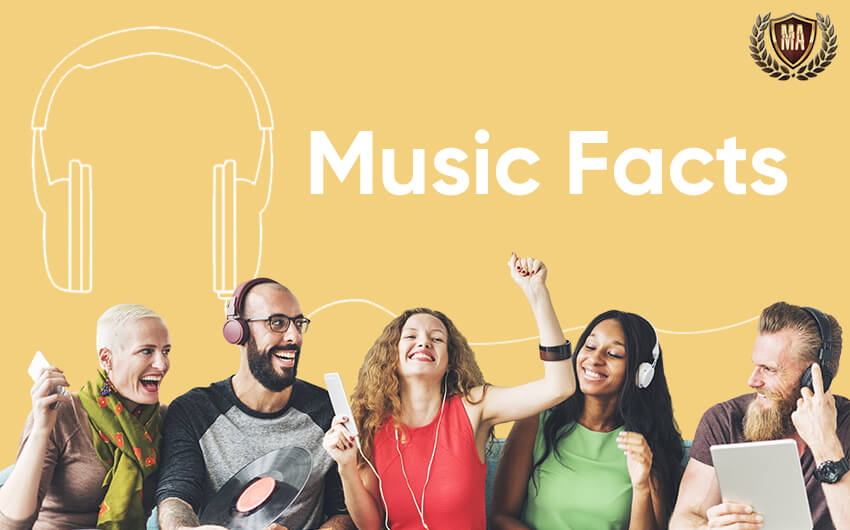We all know that music is an art form that can make our lives a thousand times better.
Over centuries, humans have made use of music to mark events of happiness as well as soothe their pain. Celebrating a special occasion like a birthday or wedding is incomplete without playing a joyful song.
Similarly, music is our best friend when we are going through a rough patch in life. Thus, music has an immense power to manipulate and alter our mental and physical health.
Let us take a look at the effects of music on different elements of human life including the body and mind.
What Are The Emotions That Music Can Make You Feel?
Playing your favourite dance track is a great way to celebrate happy moments like your team’s victory. Apart from expressing your feeling, the reverse is true as well. Playing a similar song can enhance your mood and make you happy.
Just like happiness, a song can bring tears to your eyes as well, either due to the lyrics or the music, or because of the memories attached to that song. You can also feel emotions like motivation and inspiration by listening to certain songs that uplift your spirits. Not only does it make you feel emotions, but also helps you express them better.
Music validates your emotional state and helps you become more comfortable with your emotions. Play music that matches your mental state of being to feel the emotions better. It is important to note that the same song can give two people the same emotions.
For example, you may associate a peppy number with festivals and happy times in your life.
But for somebody else, it can trigger a traumatic response if they used to listen to this song during a dark phase in their life. Thus the same music can mark different events and evoke different emotions in people. You can take music classes to get closer to understanding how music influences your mental state.
What is the Effect of Music on Stress?
As mentioned above, music can help alter moods and influence your behaviour. Listening to a happy song can improve your mood even on the worst days of your life.
It can influence the release of neurotransmitters like dopamine and serotonin, thereby altering your mood. Music is also said to impact your sleep patterns which have a great influence on your mental health.
You can also listen to songs that match your mood like anger or sadness but make sure to not repeat them as it can worsen the situation. You can even create a playlist for such times and include uplifting songs which can work as a coping strategy to change your mental state of being.
Joining a music institute is a great way to connect with like-minded individuals who are passionate about music and its positive effects. You can also play instruments or sing with a group of friends or family and feel connected by reducing the stress hormone called cortisol.
Look for music classes near you to join a community of musicians who you can spend time singing and playing instruments with.
Why Does Music Bring Back Memories?
The same mental process is involved in decoding music like how your brain processes words in a book. In the former case, your brain first recognises letters and identifies them as words and sounds and then understands what they mean in the context.
The working memory for music involves identifying the sounds that are sequentially arranged and translating them into a perception.
Also, the emotions that arise when listening to music enhance the memory that is associated with it. You are more likely to remember a song that you played over and over again when you were in love with your high school crush.
It takes you back to that time and gives you feelings of nostalgia due to the range of heightened emotions that you felt back then. Similarly, the first few songs you learned to play in your music institute will cement those memories and evoke emotions like the ambition to learn.
Does Music Have an Effect on Your Body and Pain?
Playing instruments and singing is said to improve your pain tolerance. You can increase your pain threshold by dancing or moving along to the beats of your favourite music.
There is also an increase in the amount of endorphins produced since you often enjoy the music that is being played. Music is also used in therapy to help patients with feelings of physical and mental uneasiness.
Vibroacoustic therapy is a form of therapy that makes use of low-frequency sounds to heal the body. The vibrations produced help patients with cerebral palsy improve their motor function.
You can ask your mother or wife about the music that she listens to when in labour and how it helped her heal from pain. Music thus helps us to distract from both mental and physical pain by taking our attention away from unnecessary thoughts.
Looking For Music Classes Near You?
Apart from the effects of music on your body and mind, compassionate music enthusiasts also can choose a career in music to bring about beautiful changes in their lives.
Music Aficionada is the leading music institute in Greater Noida that provides formal music classes to help students discover and experiment with their musical abilities.
We offer a variety of graded courses and music classes in instruments like guitar, keyboard, drums, and ukulele, and provide vocal classes and music theory sessions.
Enrol in our music institute to learn more about how we make use of our expertise to transform the music careers of our students.
Read also: Where Can I Learn Music in Greater Noida?


